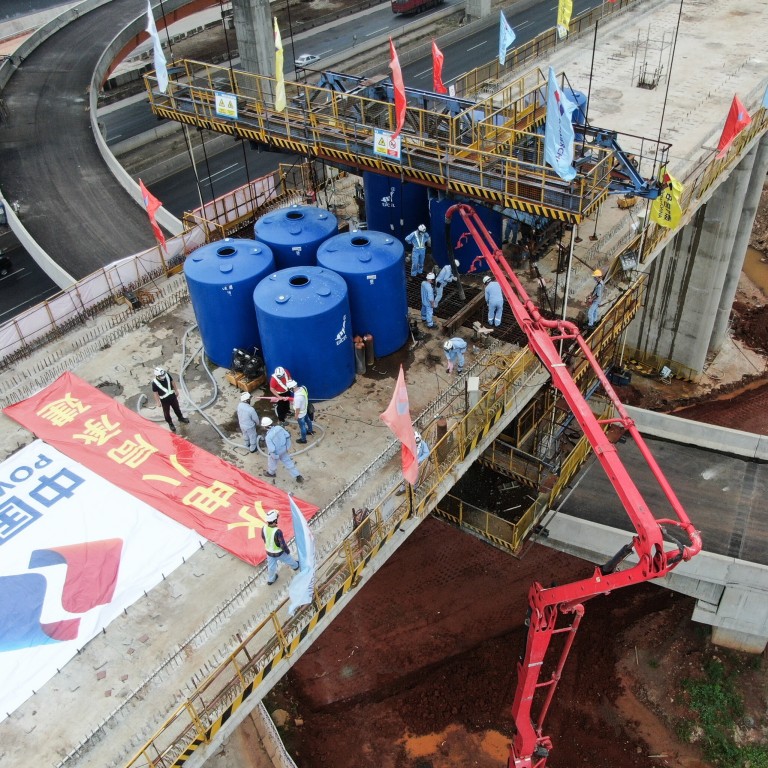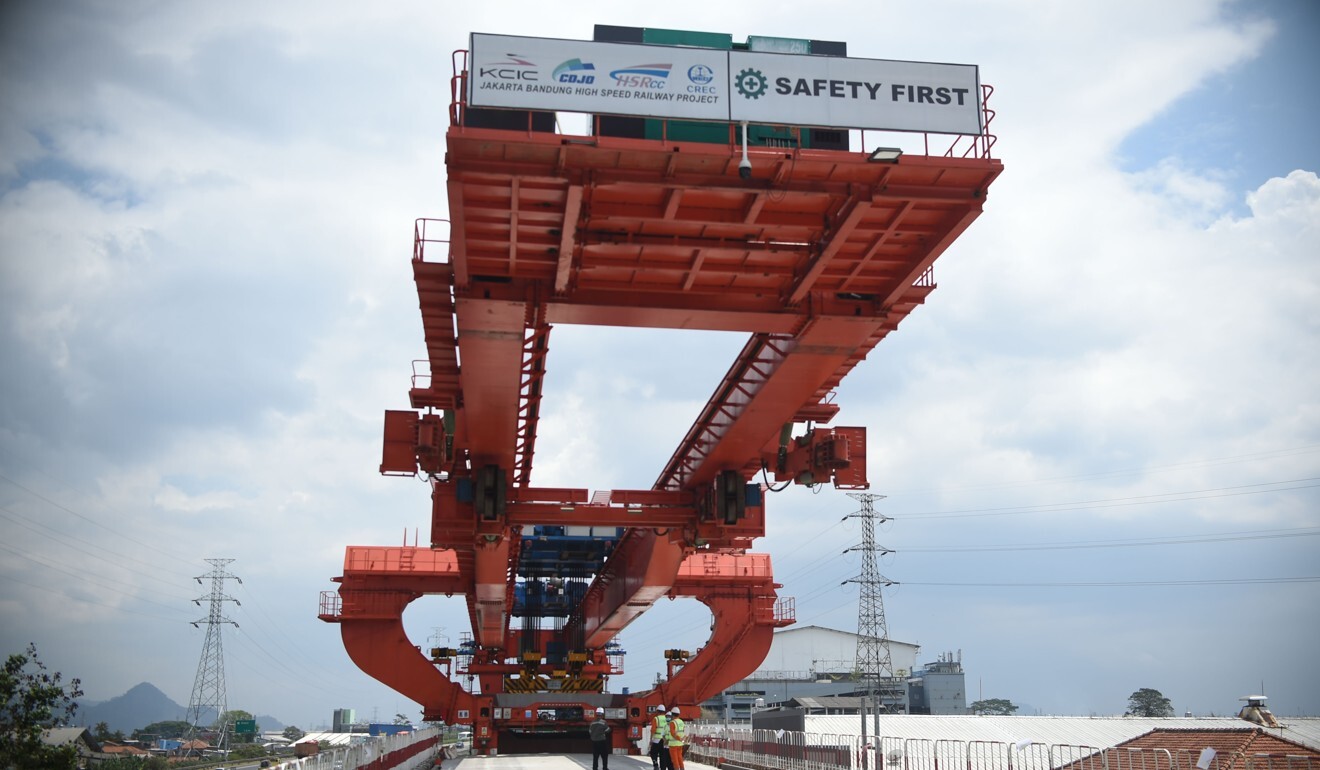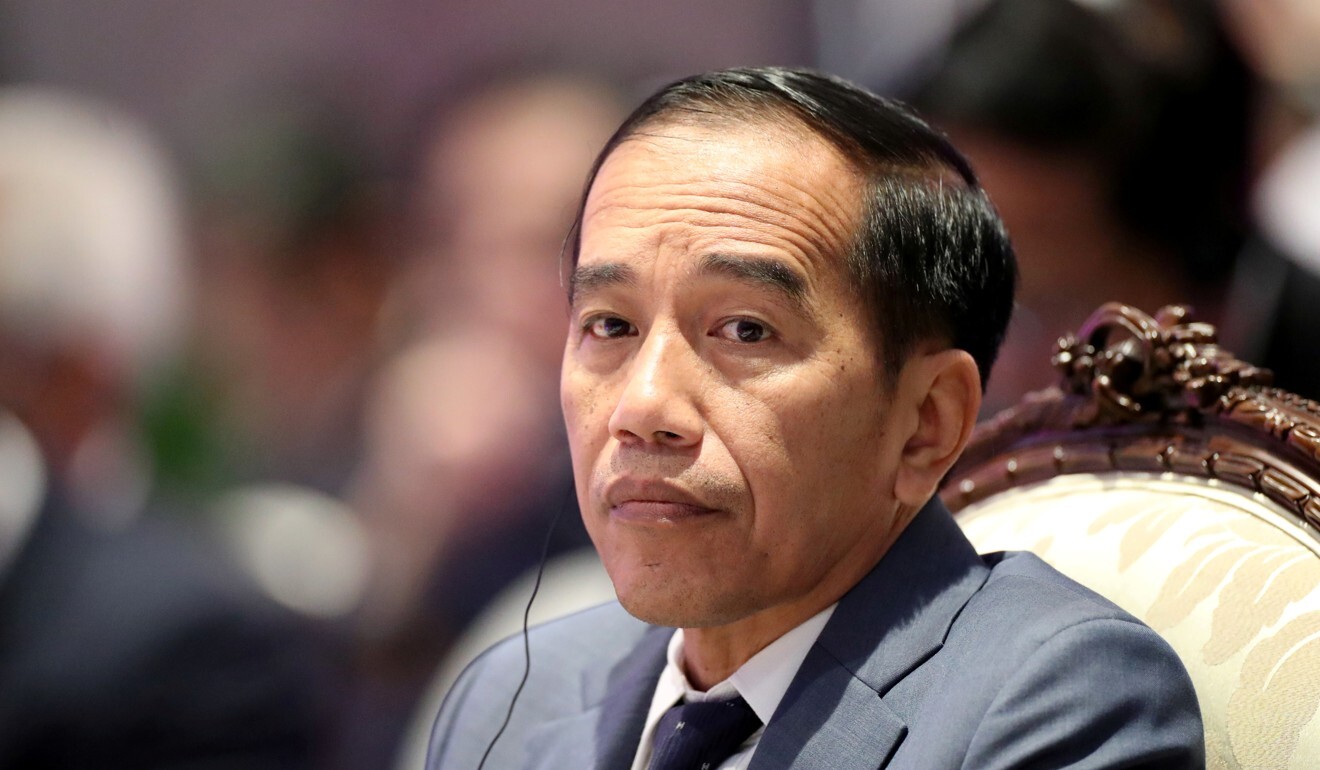
Indonesia looks for more funds as bill for China-backed rail project balloons by US$2 billion
- The Jakarta-Bandung high-speed railway, part of the Belt and Road Initiative, will cost more due to price changes for materials and land acquisition delays
- The Indonesian side also claims there are communication issues with their Chinese counterparts – though analysts say bilateral ties will stay smooth
The project’s estimated cost has increased to US$7.9 billion, up from its initial budget of around US$6 billion, due to price changes for the likes of materials and machinery, as well as delays caused by land acquisition, according to state-owned railway operator Kereta Api Indonesia (KAI).
KAI is part of the Indonesian consortium that owns 60 per cent of Kereta Cepat Indonesia-China (KCIC), the joint venture with a Chinese consortium that has the remaining 40 per cent.
“In September [2019], there had been an indication of the potential cost overrun as the project faced delays, furthermore the pandemic hit in March [last year],” Didiek Haryanto, the president director of KAI, told a parliamentary hearing on Wednesday. “Your concerns that this will be a burden for state coffers … that is exactly what will happen.”
The ‘hero’ of Asian financial crisis now faces a grim reality in Indonesia
The Indonesian government wants to use 4.1 trillion rupiah (US$287.5 million) of government funds next year to partly pay for the project’s cost overrun. Meanwhile, KAI revealed at the hearing that the Indonesian consortium had yet to pay its mandatory basic capital contribution of 4.3 trillion rupiah to KCIC.
“In a business agreement, typically we deposit the basic capital before we talk business, but we haven’t even [fulfilled that],” Salusra Wijaya, finance and risk management director at KAI, told the hearing, adding that the Indonesian side could have defaulted on the deal going by the terms of the project’s existing capital-contribution agreement.
The Indonesian consortium is required to contribute some 11 trillion rupiah (US$773.5 million) to the joint venture, consisting of the 4.3 trillion rupiah cash payment and the remainder in assets such as land. The Chinese side has so far paid US$394 million, or 65 per cent of its required US$607 million cash contribution to the project’s basic equity, according to KCIC.
Salusra said the Indonesian companies had sought to push the deadline to deliver their basic capital contribution from last December to May this year, but “the Chinese [consortium] has not answered our request yet”.
Most of the excess cost is likely to be borne by Indonesian state-owned companies, as the major shareholders in the project. The Indonesian consortium, called Pilar Sinergi BUMN Indonesia (PSBI), consists of construction company Wijaya Karya, which has a 38 per cent stake in it; KAI, with 25 per cent; highway operator Jasa Marga; and plantation firm PTPN 8.

Their Chinese counterpart, Beijing Yawan HSR, is made up of China Railway International, China Railway Group, Sinohydro, CRRC, and China Railway Signal and Communication.
“The Indonesian government and the state-owned companies that sponsor [the project] are now in talks [to find a] funding source to pay for the cost overrun,” KCIC corporate secretary Mirza Soraya told This Week in Asia in a written statement.
If the excess costs are not met, “field work” would be hindered, she said.
“The cost overrun is due to the escalation of land acquisition, relocation of public and social facilities, financing cost, and other work,” Mirza said. “KCIC is still trying to minimise this through negotiations with contractors [and other efforts].”
Red tape around Indonesia’s Covid-19 vaccines leads to expatriate exodus
During the Wednesday hearing, Didiek of KAI also said communications between the Indonesian and Chinese consortiums were “not smooth”, which he mainly attributed to lead sponsor Wijaya Karya’s expertise being in construction rather than the building of trains.
In April, the Indonesian consortium sought to reduce its stake in the project amid concerns about the overrun. Mirza of KCIC said discussions on this subject between the two sides were ongoing.
The 142.3km railway connecting Jakarta and the city of Bandung in West Java was 78 per cent complete as of mid-August, KAI said.
The high-speed railway is expected to cut travel time between the two cities to 46 minutes, down from a two-hour journey by car. Jakarta is looking to complete the project by November next year, when it is set to host the G20 summit. It was initially scheduled for completion at the end of this year.

This is not the first time the project has faced ballooning costs. When China and Indonesia signed the funding agreement in 2016, its initial budget was US$5.5 billion – only for projected costs to reach more than US$6 billion by 2018. A loan from China Development Bank accounted for 75 per cent of the funding, while the rest was from KCIC’s initial equity.
KAI has said it is seeking to restructure the loan with the Chinese state-owned lender, though finance and risk management director Salusra said this would be “really tough” as the Indonesian consortium had yet to fulfil the basic capital for the project.
Despite the challenges it faces, analysts say the problem-riddled project is unlikely to ruffle the strong bilateral relationship between Jakarta and Beijing.
Does US-Indonesia strategic dialogue really herald a new era?
“All of these problems are localised and technical, such as lack of funding and lack of good communications,” said Ple Priatna, a former Indonesian diplomat who has served a stint in Beijing. “Without this project, Indonesia and China’s relationship is already really [strong]. Our economy already depends on China’s economic growth.”
“With the delay, the public might think it was the wrong decision,” Hikmahanto said, adding that the fate of the high-speed railway would also affect public sentiment towards China.
“[A delay] will show to the public that dealing with China is never smooth. Nowadays many projects in Indonesia are funded by China, such as nickel smelters. If these projects fail, the public will blame the government.”

